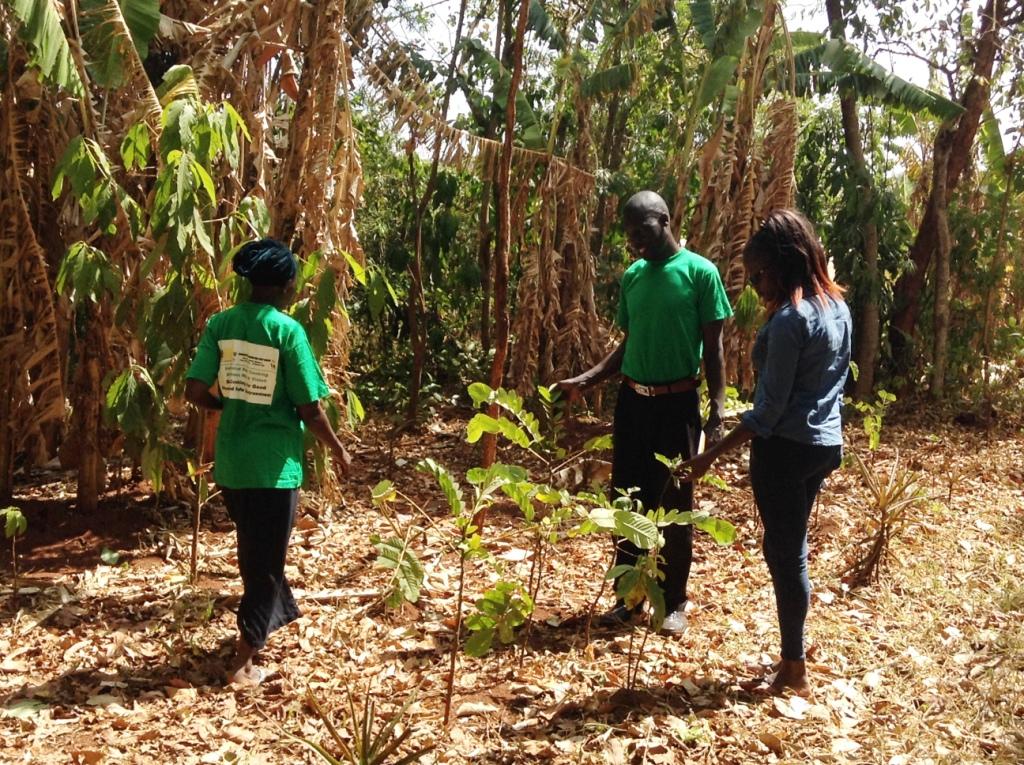23Oct2017
In-vitro antibacterial activity of selected medicinal plants
by admin, 0 Comments

In-vitro antibacterial activity of selected medicinal plants from Longisa region of Bomet district, Kenya
KR Cheruiyot, D Olila, J Kateregga
Abstract
Background: Current strategies to overcome the global problem of antimicrobial resistance include research in finding new and innovative antimicrobials from plants. This study was carried out to determine the antibacterial activity of plant extracts of Olea africana stem-bark, Psidium guajava leaves, Vernonia amygdalina leaves, Lantana camara leaves and Mangifera indica leaves which are used in folklore medicine to treat infections of microbial origin in Longisa region of Bomet District, Kenya.
Methods: Methanol extracts were derived and screened. Standard cultures of Escherichia coli ATCC 25922, Pseudomonas aeruginosa ATCC 27853, and Staphylococcus aureus ATCC 25923 were used in the study. The antibacterial tests used were the agar well diffusion assays at concentration 1gm/ml. Minimum Inhibition Concentration (MIC) was determined in the plant extract that showed some efficacy against the tested microorganisms. Gentamicin (10μg) was used as a positive control.
Results: The methanol extracts showed weak antibacterial activity against the study organisms compared to Gentamicin. All extracts
exhibited a significant bactericidal activity against S. aureus while L. camara and V. amygdalina lacked efficacy against P.aeruginosa and
E.coli. O.africana and P. guajava presented the lowest MIC against S.aureus (62.5 mg/ml and 250 mg/ml respectively P.guajava and M.
indica showed analogous MICs against P.aeruginosa (250 mg/ml). P.guajava exhibited a better MIC against E.coli (500 mg/ml).
Conclusions: This in-vitro study corroborated the antimicrobial activity of the selected plants used in folklore medicine. The plants could be potential sources of new antimicrobial agent.
Key words: Medicinal Plant extracts, antibacterial activity, MIC
Recent Posts
- Editor’s choice: Tackling infectious diseases, NCDs and sexual reproductivehealth issues as we enter our 24th year of remarkable growth
- Preconception and contraceptive care for women living with HIV/AIDSattending antiretroviral treatment clinics in Lagos State, Nigeria
- Effects of SNPs on TNF-α and IL-10 cytokine expression in TB and HIVpatients in the Capricorn district, Limpopo Province, South Africa
- Prevalence of Schistosomiasis in a neglected community, South western Nigeria at two points in time, spaced three years apart
- Review of Leishmaniasis in the Middle East and North Africa
Recent Comments
Categories
- 2001 Issues
- 2002 Issues
- 2003 Issues
- 2004 Issues
- 2005 Issues
- 2006 Issues
- 2007 Issues
- 2008 Issues
- 2009 Issues
- 2010 Issues
- 2011 Issues
- 2012 Issues
- 2013 Issues
- 2014 Issues
- 2015 Issues
- 2016 Issues
- 2017 Issues
- 2018 Issues
- 2019 Issues
- 2024 Issues
- Articles
- December issue
- December Release
- June Issue
- June Release
- March Issue
- March Issue
- March Release
- News
- number / volume 2
- number /volume 1
- number /volume 1
- number /volume 1 2008
- number 1
- number 1
- number 1
- number 1
- number 1
- number 1
- number 1
- number 2
- number 2
- number 2
- number 2
- number 2
- number 2
- number 2
- number 2 special Issue
- number 2 special Issue 2
- number 3
- number 3
- number 3
- number 3
- number 3
- number 3
- number 3
- number 4
- number 4
- number 4
- number 4
- number 4
- number 4
- number/ volume 3 2008
- number/ volume 4 2008
- number/volume 1
- number/volume 1
- number/volume 2
- number/volume 2
- number/volume 2 2008
- number/volume 3
- number/volume 3
- number/volume 3
- number/volume 4
- number/volume1
- September Issue
- September Release
- Special Edition
- special Issue
- Uncategorized
- Vol. 24 No. 1 (2024)
- volume 1
- volume 1
- volume 1
- volume 2
- volume 2
- volume 2
- volume 2
- volume 2
- volume 3
- volume 3
- volume 3
- volume 3
- volume 4
- volume 4
- volume 4
- volume 4
- volume1
Categories
- 2001 Issues
- 2002 Issues
- 2003 Issues
- 2004 Issues
- 2005 Issues
- 2006 Issues
- 2007 Issues
- 2008 Issues
- 2009 Issues
- 2010 Issues
- 2011 Issues
- 2012 Issues
- 2013 Issues
- 2014 Issues
- 2015 Issues
- 2016 Issues
- 2017 Issues
- 2018 Issues
- 2019 Issues
- 2024 Issues
- Articles
- December issue
- December Release
- June Issue
- June Release
- March Issue
- March Issue
- March Release
- News
- number / volume 2
- number /volume 1
- number /volume 1
- number /volume 1 2008
- number 1
- number 1
- number 1
- number 1
- number 1
- number 1
- number 1
- number 2
- number 2
- number 2
- number 2
- number 2
- number 2
- number 2
- number 2 special Issue
- number 2 special Issue 2
- number 3
- number 3
- number 3
- number 3
- number 3
- number 3
- number 3
- number 4
- number 4
- number 4
- number 4
- number 4
- number 4
- number/ volume 3 2008
- number/ volume 4 2008
- number/volume 1
- number/volume 1
- number/volume 2
- number/volume 2
- number/volume 2 2008
- number/volume 3
- number/volume 3
- number/volume 3
- number/volume 4
- number/volume1
- September Issue
- September Release
- Special Edition
- special Issue
- Uncategorized
- Vol. 24 No. 1 (2024)
- volume 1
- volume 1
- volume 1
- volume 2
- volume 2
- volume 2
- volume 2
- volume 2
- volume 3
- volume 3
- volume 3
- volume 3
- volume 4
- volume 4
- volume 4
- volume 4
- volume1
